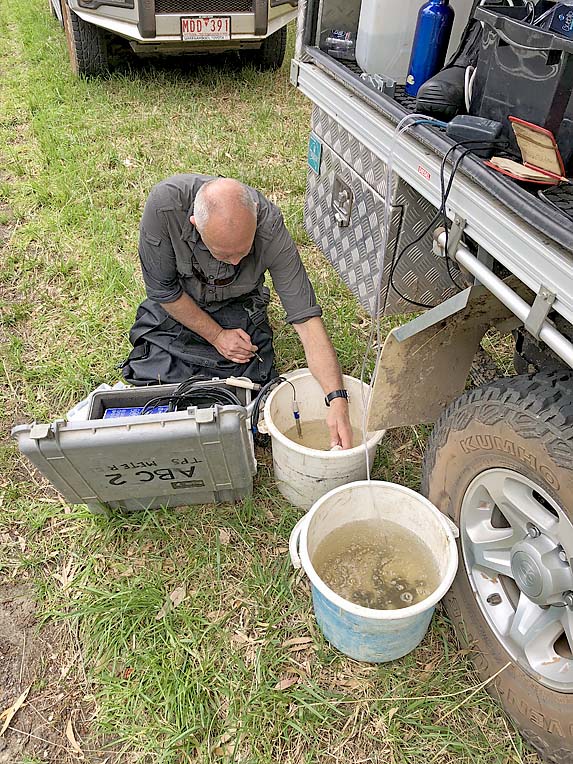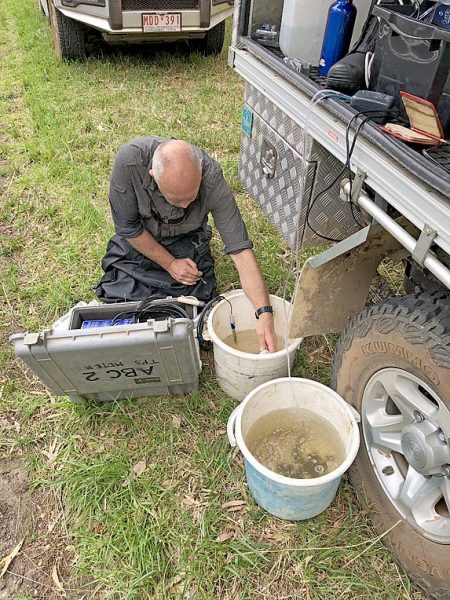

AN insurance policy is in place for a critically endangered freshwater mussel which remains at risk following a bushfire at Hotspur.
Around 30 specimens of the small Glenelg Freshwater Mussel have been temporarily moved from a tributary of the Glenelg River downstream of the December 21 fire, which occurred around 20km east of Dartmoor.
The specimens were collected by the Environment, Land, Water and Planning Department (DELWP) and scientists from the Arthur Rylah for the Environmental Research Institute.
There are only three known locations of the species with a five-kilometre long, three-metre wide reach of the tributary home to the largest population.
According to DELWP, there is an increased risk of sediment entering waterways from erosion and runoff as the landscape recovers from the 2969ha bushfire, which was started by lightning late last year.
Working with Parks Victoria and Glenelg Hopkins Catchment Management Authority, DELWP and Arthur Rylah Institute scientists assessed the likelihood of the waterway being impacted by high rainfall events.
While measures have been put in place to protect creeks and rivers from sediment runoff during low and medium rainfall events, a high rainfall event could result in sediment and debris entering waterways and smothering the stream beds where the mussels live.
DELWP program manager natural environment programs Garry Peterson said understanding the impacts and risks to the environment had been a priority following fires in the far south west.
“These assessments are helping guide protection and recovery actions for species great and small, including the Glenelg Freshwater Mussel,” Mr Peterson said.
The small and fragile mussels were collected and transported to holding facilities at the Arthur Rylah Institute, providing a safeguard for the population.
Assessments of the waterway and fire ground over the next six months will determine when the mussels can be returned to strengthen their population and ensure genetic diversity.







